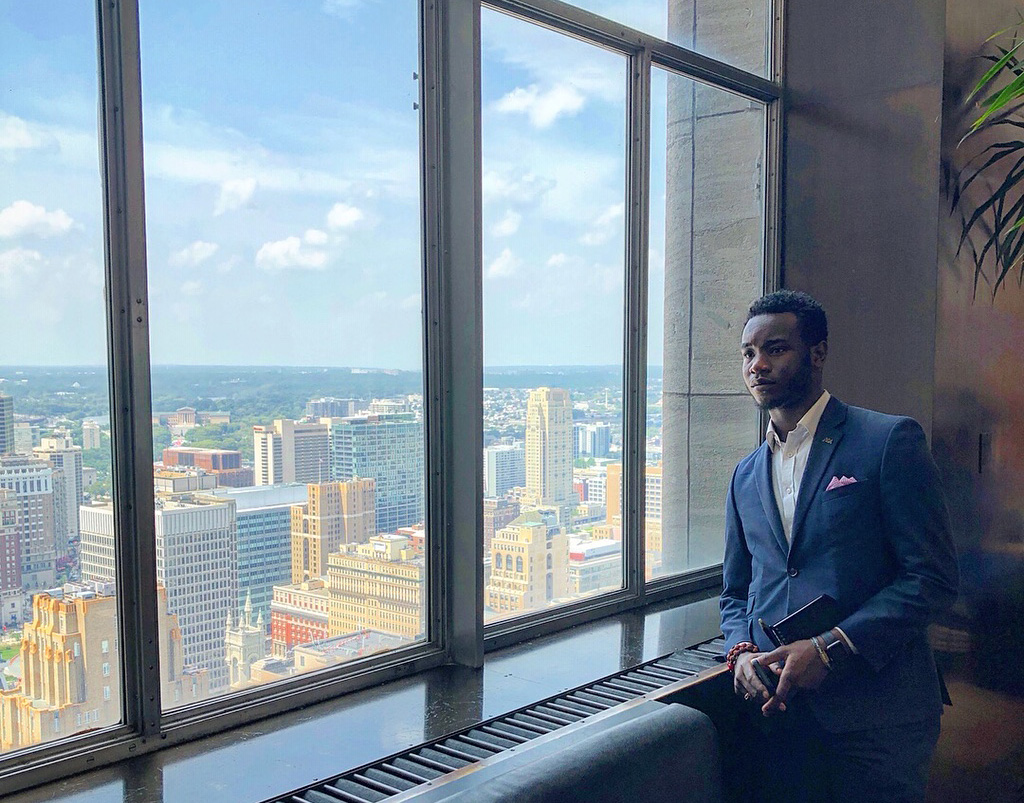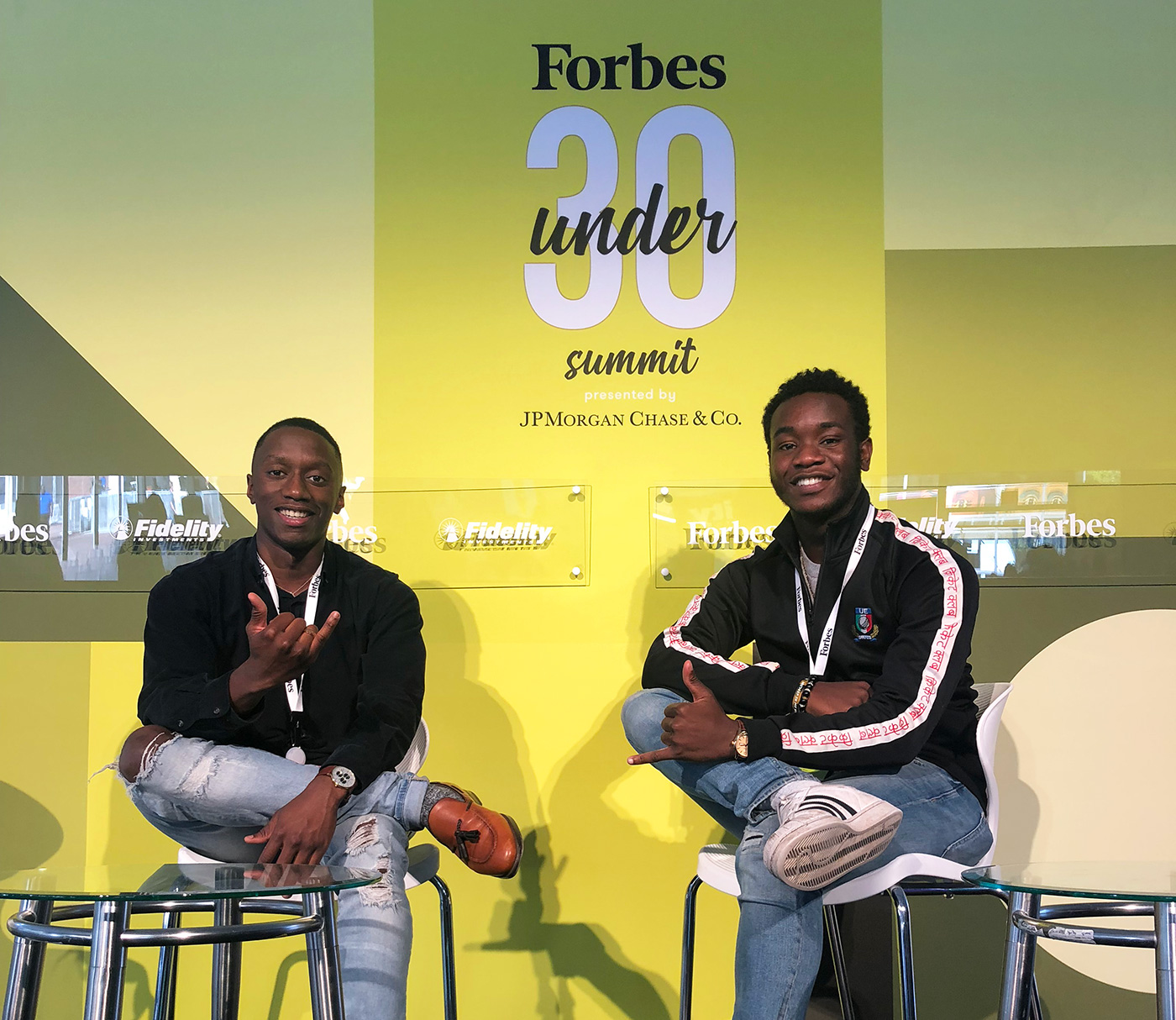Have you ever imagined starting college at the age 15? Or working at four fortune 500 companies before you’ve even graduated? For electrical engineering student Taofik, this isn’t a daydream.

Taofik was born in Chicago but moved to Nigeria at a young age. He quickly stood out academically, skipping sixth grade and attending an accelerated STEM-based school.
“I feel like I excelled really well there,” Taofik says.
This is the understatement of the century—not only was Taofik named student body president, but he was also ready to apply to college three years early!
Starting college at 15 sounds like the plot to a great movie, but prestige wasn’t Taofik’s motivation to get a head start.
“I come from a very low-income family, so waiting till I was the right age … would have inconvenienced my parents. I knew if I could get into college and get enough scholarships, they wouldn’t have to worry about me anymore.”
Given his strengths in math and science, Taofik felt engineering would be the natural step forward. He wasn’t very familiar with colleges in the United States, but he knew what he was looking for.
“The Nigerian mind says, ‘Okay, you’re going to get the best degree, best school,’ things like that, so I looked up top engineering schools,” Taofik says. “The University of Illinois was one of the best engineering schools in the world, so I was like, ‘It’s not a question.’”
“I don’t like to just be somewhere; I like to make sure I’m contributing.”
When it was time to head to Illinois, Taofik had to act mature beyond his years in more ways than his education.
“I came from Nigeria by myself, just hopped on the plane,” Taofik says. “I was really eager to get started, get the experience.”
It’s easy to understand why Taofik’s unique situation set him apart from most of his peers. Though he looked older than his age, he had fewer experiences than his 18-year-old classmates, and some of them underestimated him.
“There were some difficulties,” Taofik says, “but I feel like I was able to tackle it well because I’m really open-minded, very individualistic.”
As Taofik managed the social challenges of his new environment, he also faced some academic hurtles outside his control.
“In Nigeria, we don’t have as much access to resources, so coming into college, we’re already a step behind, not as prepared as most other demographics for those classes. For us, it’s like we got to catch up, learn those fundamentals,” Taofik says. “Over here, it’s like, there are coding classes, there are things you can AP, and all these things you can do. I didn’t have any exposure to all of that.”
Not only that, but Taofik found that studying a STEM field could be twice as hard if you were Black.
“I feel like a lot of times people are … not as willing to work with us. If you’re in a class and you’re in a group project, Black people are some of the most intimidating people to others,” Taofik says. “These are all issues that make it even harder for us to just go about an already hard major curriculum.”
Because Taofik wanted to combat such microaggressions, he got involved.
“I don’t like to just be somewhere; I like to make sure I’m contributing.”

And contribute he has. Taofik served as the treasurer and then the president of the National Society of Black Engineers (NSBE), and he is also involved with the Morrill Engineering Program. His goal is to help make minority students interested in STEM aware of the resources on campus available to them.
“My mentors and these orgs helped me as a freshman,” Taofik says, “so I thought, ‘Let me contribute back.’ … This is one of the best schools that provides a lot of opportunities through the Office of Minority Student Affairs, the minority engineering program, CARE tutoring. There are so many resources that I honestly wish I could have leveraged more in my early years.”
On top of his involvement, Taofik also decided to add a business minor. He is part of the Hoeft Technology and Management Program, an extremely competitive career-oriented curriculum that fuses business with engineering. The few who are accepted get the opportunity to travel all around the world, including China, Germany, and Silicon Valley.
“I always knew I wanted to start my own business one day, and I’ve been working on stuff on the side that works towards that,” says Taofik.
This side project took the form of Tash Enterprises, a creative digital media company that Taofik started. Between providing video services on campus and prototyping an app that could help manage social media accounts, Taofik stayed pretty busy.
And Tash Enterprises wasn’t Taofik’s only gig. Even during his freshman year, Taofik was on the lookout for a summer job that could support his family.
“My mind said, ‘Okay, what is the best way I can raise money or work?’”
For Taofik, the answer was an internship.

As many college students know, it’s difficult to get an internship as a freshman, especially in a STEM field. STEM internships are prized positions, and freshmen are competing against older applicants who have more experience than they do. It’s no small matter, then, that Taofik was hired as an intern in material flow engineering at John Deere.
With his salary, Taofik was able to support his family and pay off the portion of his tuition not covered by his scholarship. And that was only internship number one.
“If you have professional experience at one great place, other great places will want you,” Taofik says.
His second summer, he worked at Chevron in Houston. The next summer, he interned with Accenture. And the summer before his fifth and final year at Illinois, he was at Microsoft.
Taofik already had a high opinion of Microsoft because they had awarded him a scholarship his freshman and sophomore years, but this internship sealed the deal. He was given a lot of responsibility in his role and felt supported all the way.
“The community there was great, no matter who you were,” he says. “I gained so much experience within three months that literally from the beginning of my internship to the end of my internship, I feel like I was a whole different person.”
So when he was offered a full-time position as a program manager upon his upcoming graduation, Taofik readily accepted.

And for his future as an Illinois alumnus? Taofik has plans for that, too.
“I definitely feel like once I graduate, I’m going to be one of those alumni who comes back and advocates, because one of the biggest things that really helps people or minorities or people of color to really be pushed is seeing someone being successful in that area,” Taofik says. “So that’s something I want to do, be a continuous advocate, help make sure my story is told so people can feel inspired.”
And with Taofik’s track record, it’s a good bet that his story is only getting started.